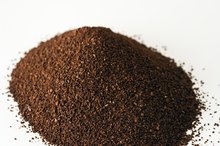What does fact checked mean?
At Healthfully, we strive to deliver objective content that is accurate and up-to-date. Our team periodically reviews articles in order to ensure content quality. The sources cited below consist of evidence from peer-reviewed journals, prominent medical organizations, academic associations, and government data.
- "Nutrition"; Caffeine-Not Just a Stimulant; MJ Glade; October 2010
- "Nutrition"; Caffeine-Not Just a Stimulant; MJ Glade; October 2010
The information contained on this site is for informational purposes only, and should not be used as a substitute for the advice of a professional health care provider. Please check with the appropriate physician regarding health questions and concerns. Although we strive to deliver accurate and up-to-date information, no guarantee to that effect is made.
How Much Caffeine Is in Diet Sunkist?
Diet Sunkist is a low-calorie orange soda that provides a taste similar to the original Sunkist, without the high level of sugar and calories 1. As a result, Diet Sunkist is more appropriate for reduced-calorie weight loss plans or for those watching their sugar intake. According to the official website for Sunkist, Diet Sunkist did not emerge until after Cadbury Schweppes acquired the license to produce Sunkist Orange Soda in 1986; regular Sunkist was launched nationally in 1979 1.
Caffeine Content
According to the caffeine content database at soft drink website Energy Fiend, each 12-oz. serving of Diet Sunkist 1 orange soda contains 42 mg of caffeine 1. This equates to a total of 3.5 mg of caffeine per ounce. If you are a coffee drinker, this amount of caffeine is unlikely to have a substantial effect on you, as Energy Fiend notes that coffee tends to have much higher levels of caffeine; a Starbucks grande, for instance, contains 20.6 mg per ounce.
- According to the caffeine content database at soft drink website Energy Fiend, each 12-oz.
Diet Drinks With More Caffeine
Comparison of Caffeine Contents in Soft Drinks
Learn More
Diet Sunkist Orange Soda is not the most caffeinated diet drink, according to the information from Energy Fiend 1. The website notes that Diet Mountain Dew contains 4.6 mg per ounce, or 55 mg of caffeine in a 12-oz. serving. In addition, Diet Coke contains 45 mg per serving, while Diet Pepsi Max contains 69 mg per serving.
- Diet Sunkist Orange Soda is not the most caffeinated diet drink, according to the information from Energy Fiend 1.
- In addition, Diet Coke contains 45 mg per serving, while Diet Pepsi Max contains 69 mg per serving.
Diet Drinks With Less Caffeine
However, Energy Fiend also notes that Diet Sunkist Orange Soda is not the least caffeinated diet beverage, either 1. Although many drinks do contain more than 42 mg of caffeine per 12-oz. serving, Energy Fiend notes that Diet Pepsi contains 36 mg of caffeine per serving, or 3 mg per ounce. Diet Cherry Coca-Cola is also lower in caffeine than Diet Sunkist, with 34 mg per serving, or 2.8 mg per ounce. Other low-caffeine diet drinks include Diet Mr. Pibb and Diet A&W Cream Soda.
- However, Energy Fiend also notes that Diet Sunkist Orange Soda is not the least caffeinated diet beverage, either 1.
- Diet Cherry Coca-Cola is also lower in caffeine than Diet Sunkist, with 34 mg per serving, or 2.8 mg per ounce.
Caffeine Benefits
Calories in Bacardi and Diet Coke
Learn More
Caffeine is known as an energy-boosting ingredient, but its benefits extend beyond the ability to keep you awake. Some research suggests caffeine may enhance your cognitive abilities, as well. A detailed review of caffeine-related studies published in the October 2010 issue of the journal "Nutrition" indicates that caffeine may enhance your short-term memory, focus and problem-solving ability compared with a placebo 2.
- Caffeine is known as an energy-boosting ingredient, but its benefits extend beyond the ability to keep you awake.
- A detailed review of caffeine-related studies published in the October 2010 issue of the journal "Nutrition" indicates that caffeine may enhance your short-term memory, focus and problem-solving ability compared with a placebo 2.
Caffeine Side Effects
Although caffeine has some benefits, it does have potential side effects 3. According to the supplement information website Drugs.com, the most common side effects associated with caffeine use include dizziness, irritability, nausea and nervousness 3. However, the website notes that these are not the only possible side effects, and that some other effects require medical attention. These side effects include hives, swelling, difficulty sleeping, vomiting and shaking. Drugs.com notes that studies involving caffeine showed side effects to be present at dosages of 250 mg, which would equate to around 71 oz 3. of Diet Sunkist 1.
Related Articles
References
- Sunkist Soda: History
- "Nutrition"; Caffeine-Not Just a Stimulant; MJ Glade; October 2010
- Drugs.com: Caffeine Side Effects
- Zaragoza J, Tinsley G, Urbina S, et al. Effects of acute caffeine, theanine and tyrosine supplementation on mental and physical performance in athletes. J Int Soc Sports Nutr. 2019;16(1):56. doi:10.1186/s12970-019-0326-3
- Higashi Y. Coffee and endothelial function: A coffee paradox? Nutrients. 2019;11(9). doi: 10.3390/nu11092104
- Temple JL, Bernard C, Lipshultz SE, Czachor JD, Westphal JA, Mestre MA. The safety of ingested caffeine: A comprehensive review. Front Psychiatry. 2017;8:80. doi:10.3389/fpsyt.2017.00080
- National Institute on Drug Abuse for Teens. Is caffeine really addictive? Updated 2020.
- The American College of Obstetrics and Gynecology. Moderate caffeine consumption during pregnancy. Updated 2016.
- Kids Health from Nemours. Caffeine. Updated 2017.
- Beydoun MA et. al. Caffeine and alcohol intakes and overall nutrient adequacy are associated with longitudinal cognitive performance among U.S. adults. The Journal of Nutrition. 2014;144(6);890-901. doi:10.3945/jn.113.189027
Writer Bio
Brian Willett began writing in 2005. He has been published in the "Buffalo News," the "Daytona Times" and "Natural Muscle Magazine." Willett also writes for Bloginity.com and Bodybuilding.com. He is an American Council on Exercise-certified personal trainer and earned a Bachelor of Arts in journalism from the University of North Carolina.









